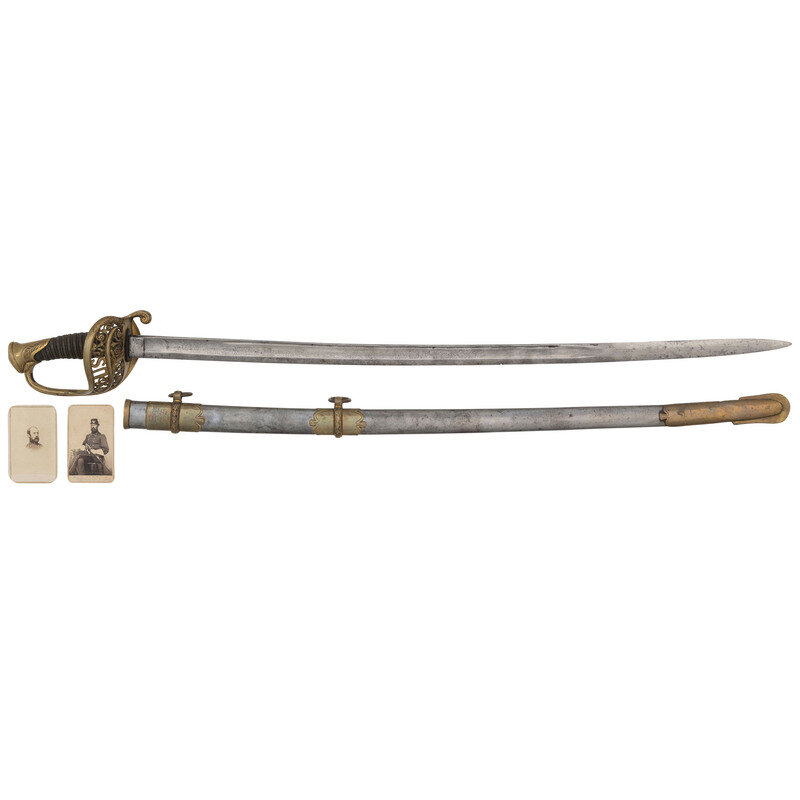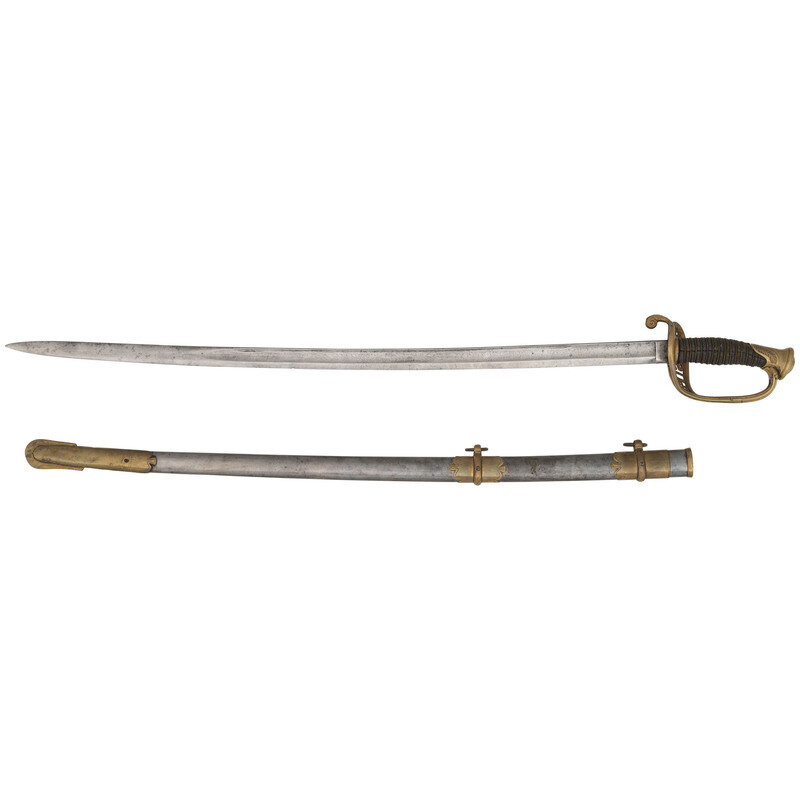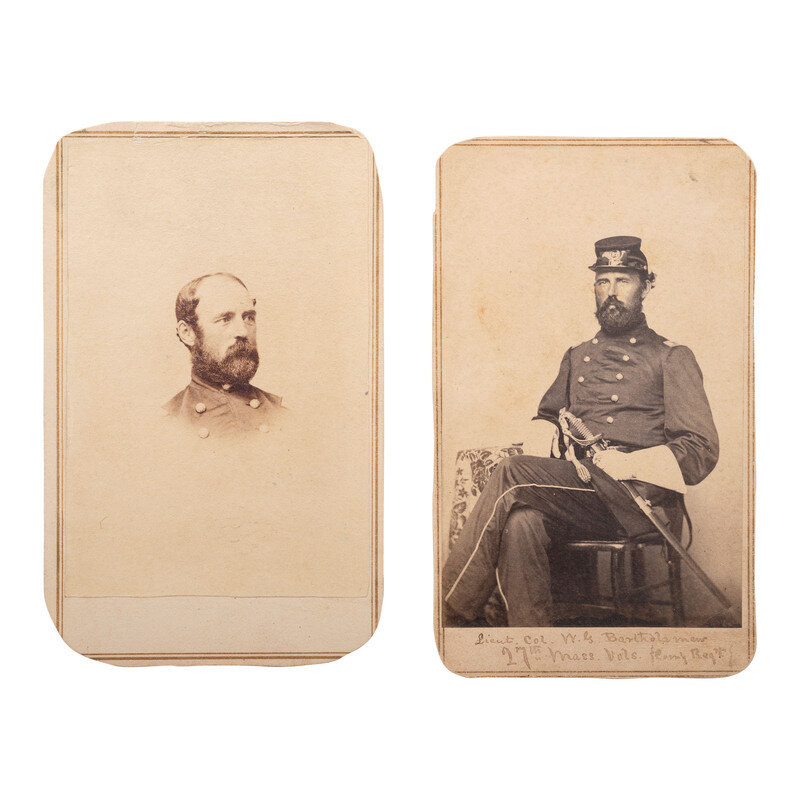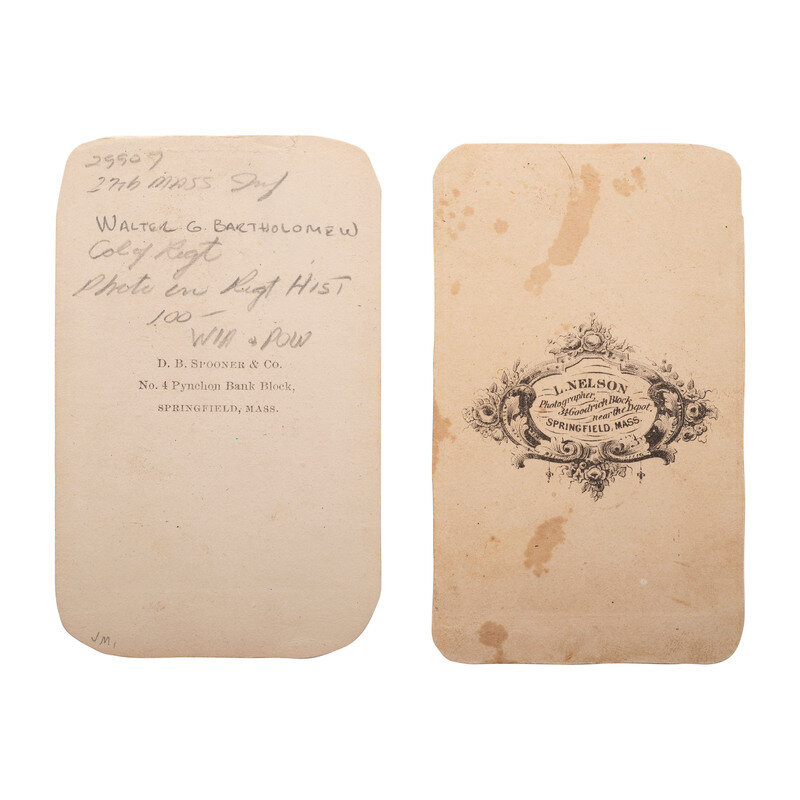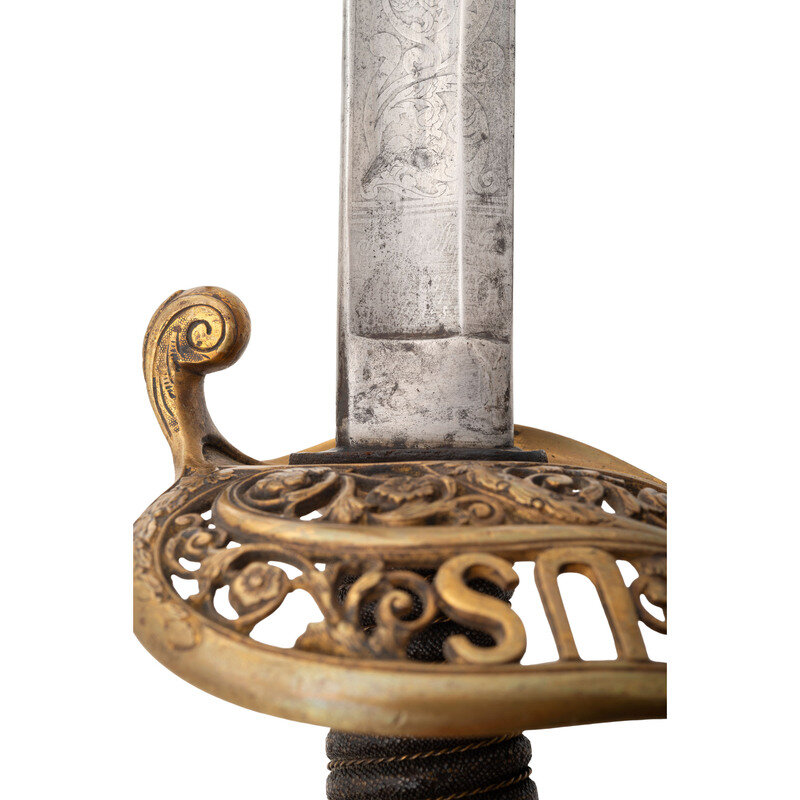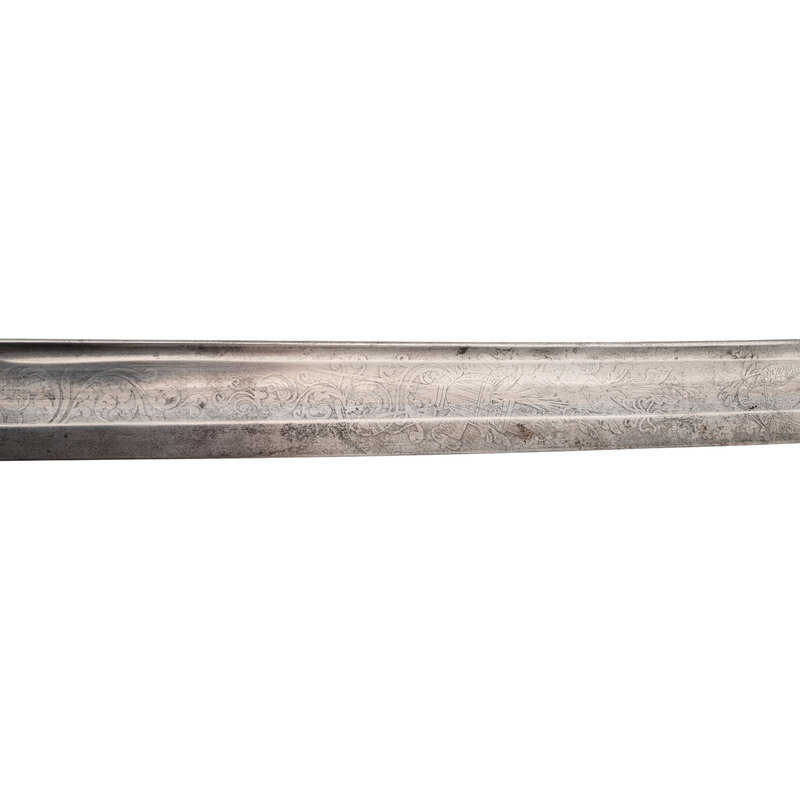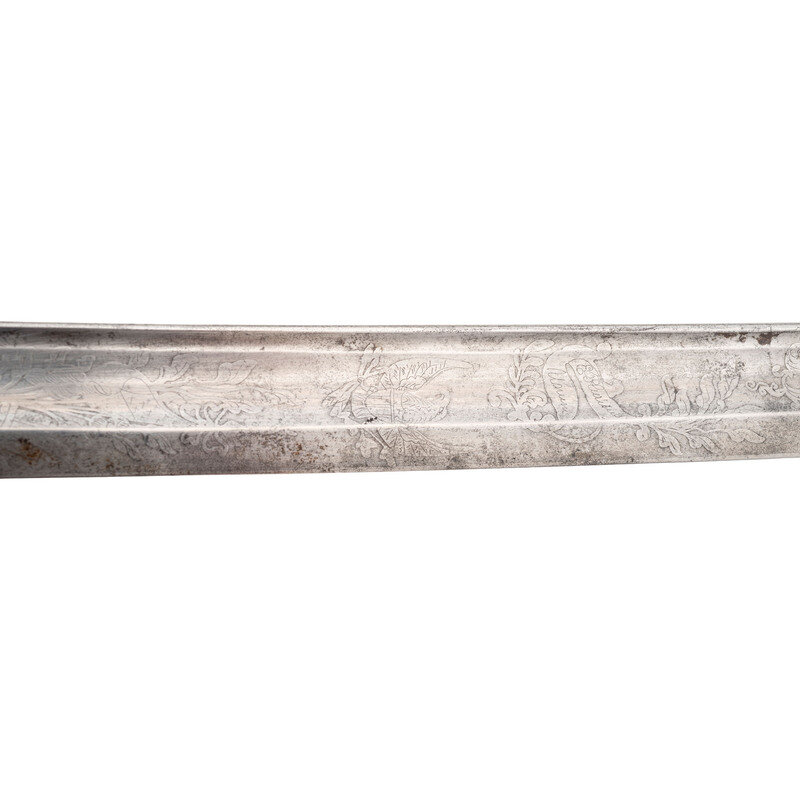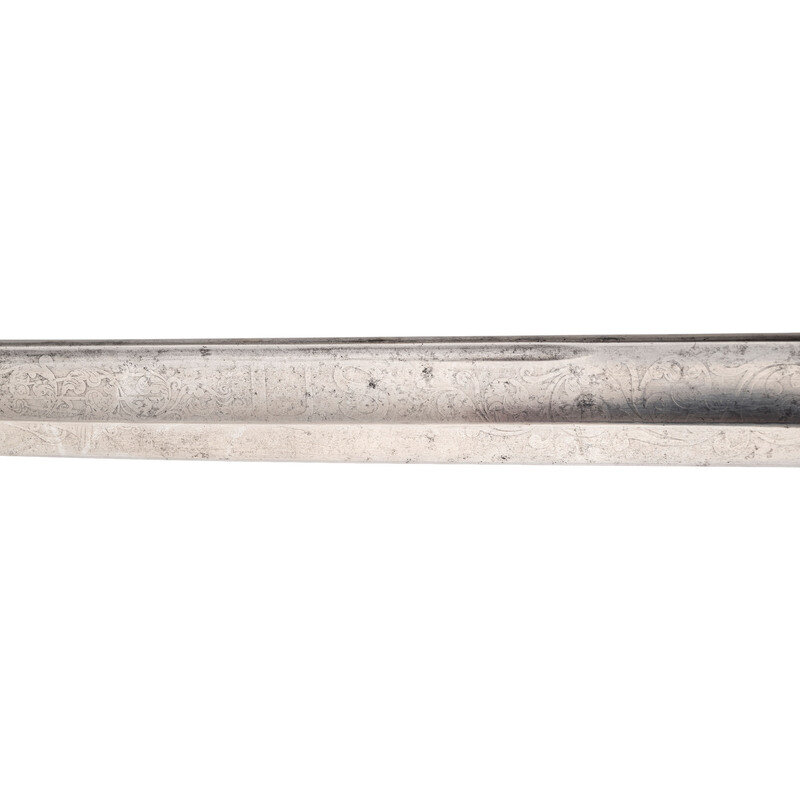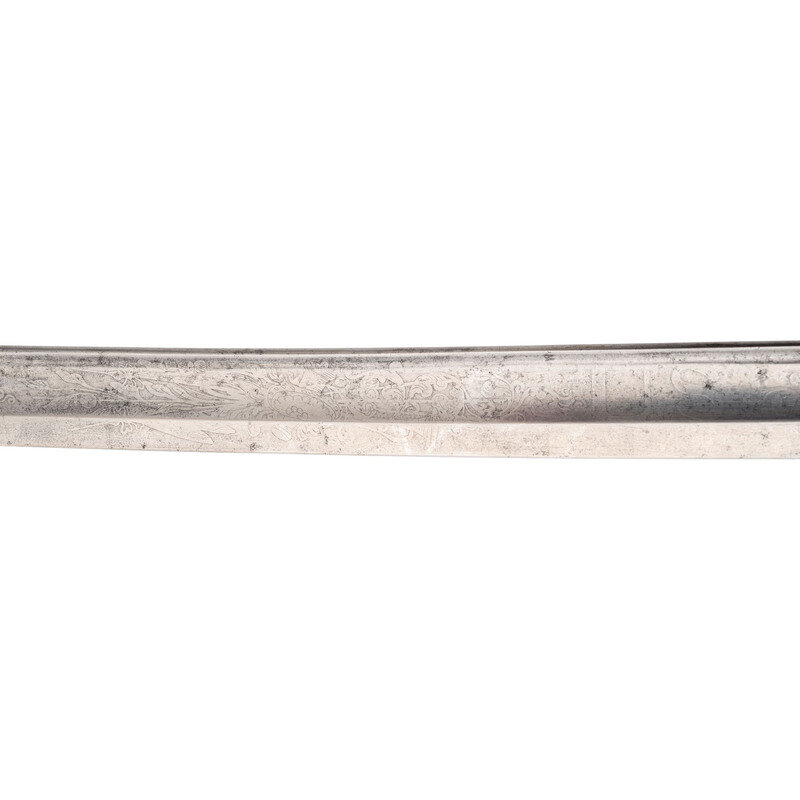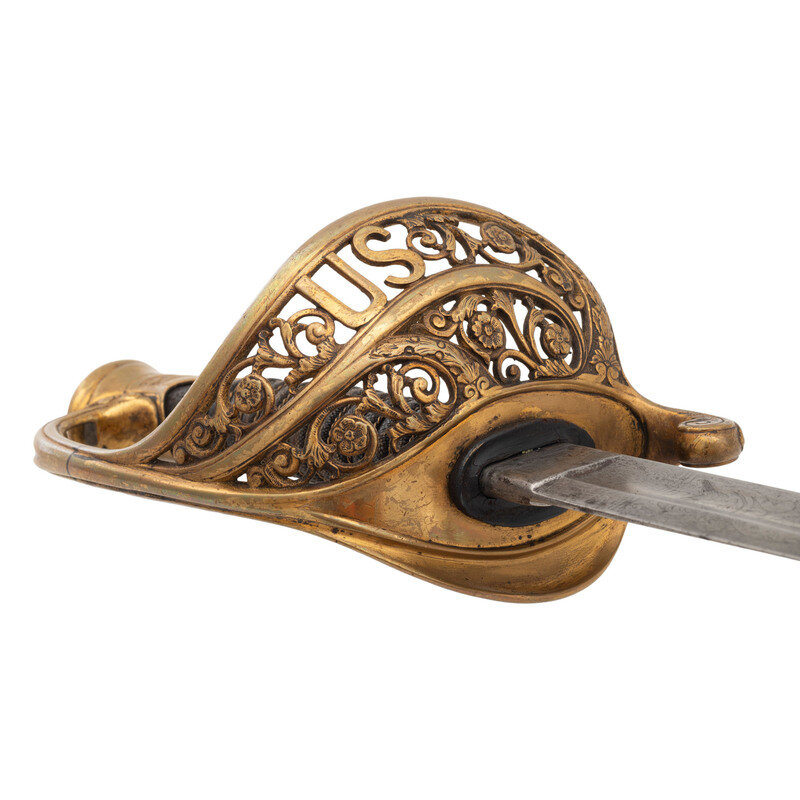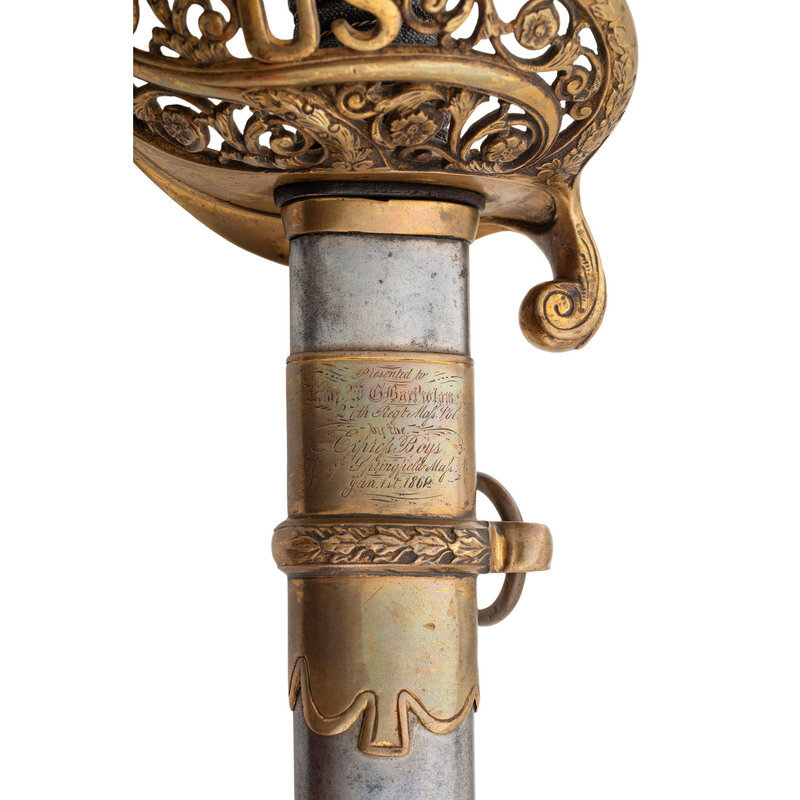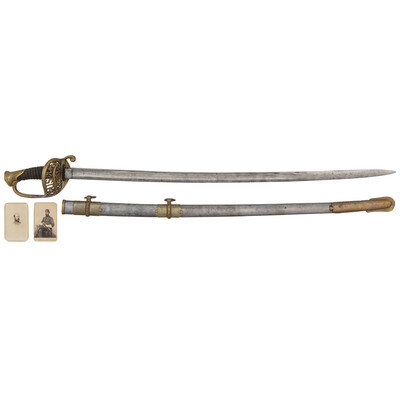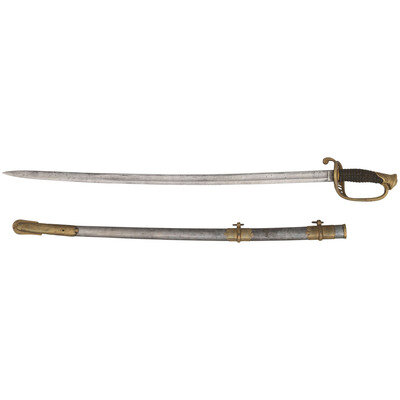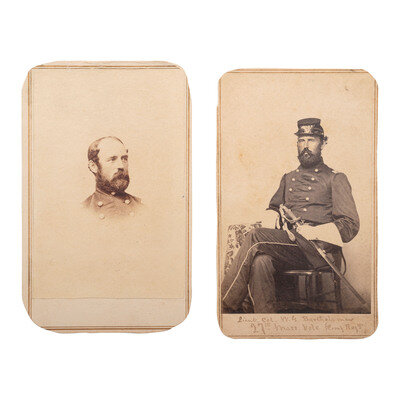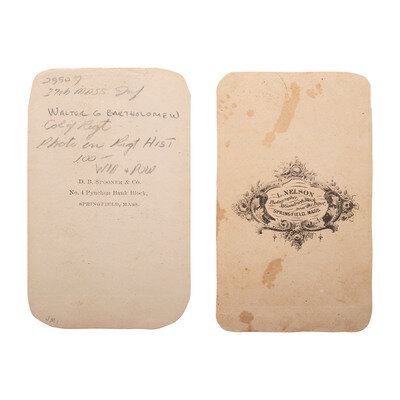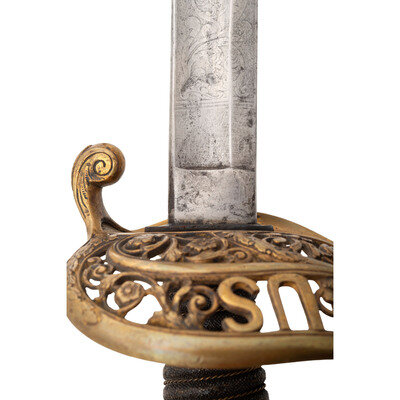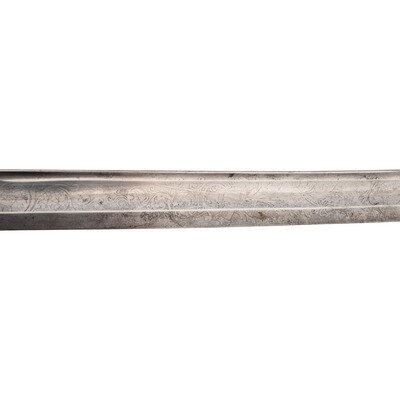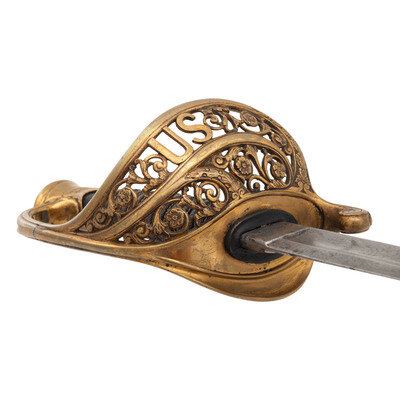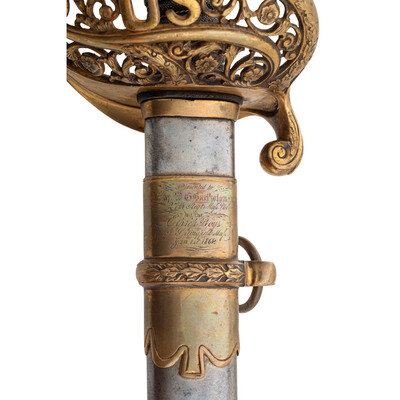Condition Report
Contact Information
Auction Specialists
Lot 8
Ames Model 1850 Staff & Field Officers Sword Presented to Major W.G. Bartholomew 27th Mass Infantry - Twice POW & WIA with Two CDV's
Sale 1353 - Arms, Armor and Militaria
May 1, 2024
10:00AM ET
Live / Cincinnati
Own a similar item?
Estimate
$3,000 -
5,000
Price Realized
$3,300
Sold prices are inclusive of Buyer’s Premium
Lot Description
Ames Model 1850 Staff & Field Officers Sword Presented to Major W.G. Bartholomew 27th Mass Infantry - Twice POW & WIA with Two CDV's
American Civil War
32" single-edged slightly curved blade with a 22" stopped median fuller. 38" in overall length. 6" hilt with gilt brass guard decorated with foliate themes with a US in the face. Grooved wooden grip covered in shagreen with 15 wraps of twisted wire. Blade etched with flowing foliate scrolls, as well as patriotic and martial themes with a weak etched Ames mark on the obverse above the ricasso. The sword is accompanied by its Ames marked brass mounted steel scabbard. The face of the upper mount is engraved: Presented to/Maj. WG Bartholomew/27th Regt Mass Vols/by the/Express Boys/of Springfield Mass/Jan 1st 1862. The sword is accompanied by two CDVs of Bartholomew, one being a studio image that appears to include this sword, and a large binder of information and research about him. An article about Bartholomew and this sword was written by Wiley Sword and published in the November 1970 issue of The Gun Report. The sword was purchased by Wiley Sword from Norm Flayderman in 1966 and the original receipt is included with the various documents.
Walter G. Bartholomew (1826-1912) spent his early working life as an enlisted man in the US Army. From 1849-1854 he served in the US Army's Corps of Engineers, rising to the rank of corporal. Unable to support his family on the low enlistedman's pay, he left military service and found work with the Thompson's Express company in Springfield, MA. With the outbreak of the Civil War Bartholomew's military experience was considered a great asset and he was commissioned a captain in the 27th Massachusetts Volunteer Infantry on October 16, 1861, commanding company H. On December 7, 1861 Bartholomew was promoted to Major. The 27th was one of the regiments that participated in Burnside's North Carolina Expedition, fighting at Roanoke Island and New Berne. Bartholomew, now a major, was the first Union solider to land on Roanoke Island and led the 27th during this amphibious assault. On May 29, 1863 Bartholomew was promoted to lieutenant colonel. The regiment remained in North Carolina through early 1864 when it was recalled to the Virginia theater of operations. On May 16, 1864, at Drewry's Bluff much of the regiment was captured, along with Bartholowmew. He was initially confined at Libby Prison but was soon moved to Charleston, SC where he was confined under the shelling of US ordnance. He was exchanged on August 2, 1864 and promoted to colonel on September 21, 1864. However due to the small number of men remaining in the regiment he was never officially mustered as a colonel. On March 8, 1865 at the Battle of Southwest Creek, NC the 27th was surrounded and during the action Bartholomew was badly wounded in the leg below his knee and captured. Bartholomew was stripped of nearly all of his personal belongings and much of his clothing at that time, including his sword. Initially the Confederate surgeon wanted to amputate the leg but was bribed by another of the 27th Mass officers to try to save the leg, which he did. However he did not clean the wound well and it troubled Bartholomew for years until a piece of leather from his boot that was taken into the wound, worked its way out on its own. While in the Confederate hospital in High Point, NC Bartholmew was visited by the commander of the 28th GA, Col. Zachary, who returned Bartholomew's sword due to his heroism under fire. The end of the war brought Bartholmew's release from his second stint as a POW. He received an invalid pension for the rest of his life and moved to Tampa after the war, dying in 1912.
From the Collection of George Oldenbourg
This lot is located in Cincinnati.
